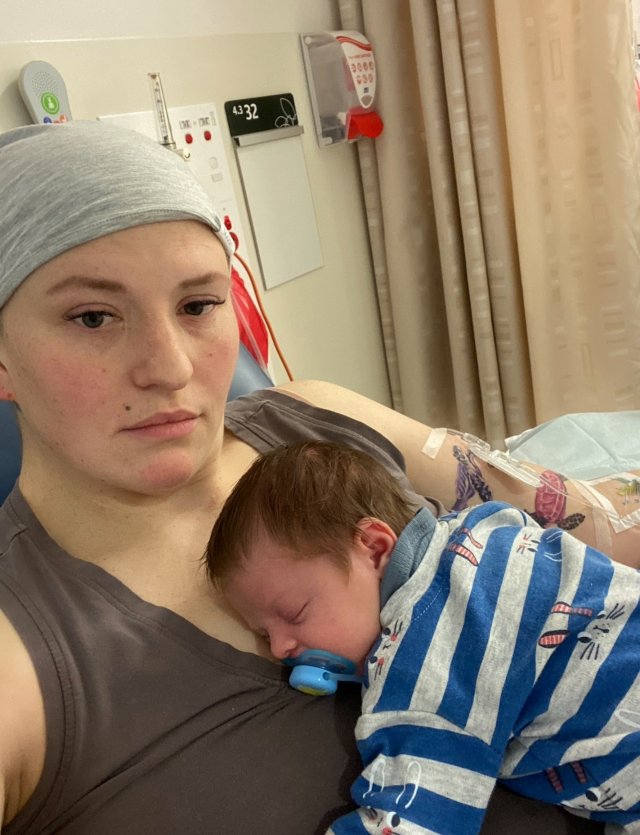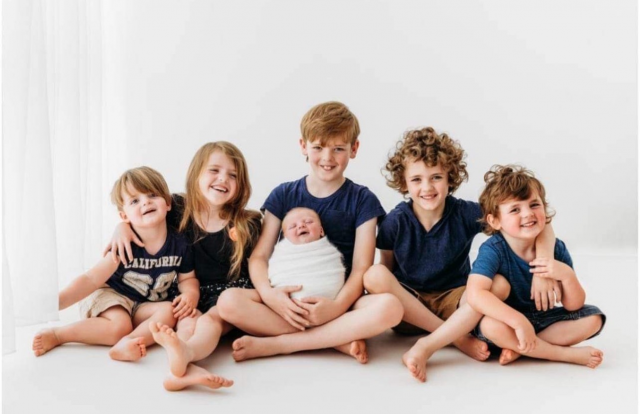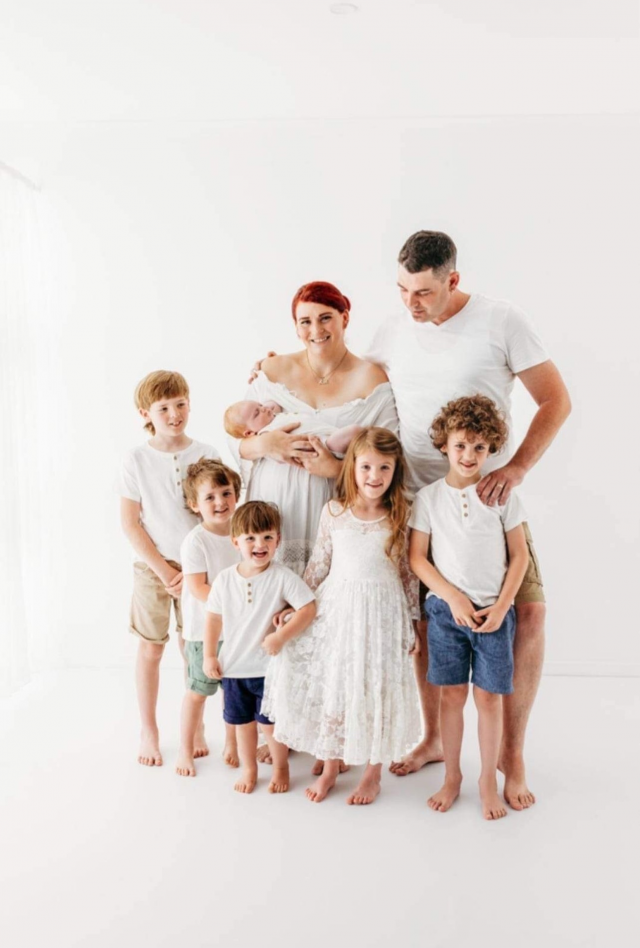
By Mikayla Van Loon
With six incredible reasons to keep fighting, Mooroolbark mum Susan Mackenzie aims to defy the odds, after being diagnosed with triple negative breast cancer (TNBC) three years ago.
Battling the first diagnosis during her pregnancy with her fifth child, Jackson, after finding a lump in her breast first thought to be a blocked milk duct, Susan was on a path to chemotherapy by January 2020.
“It was surreal. It didn’t feel real to me,” she said.
“I did four AC chemos which brought me up to 32 weeks pregnant and they decided to give me a month break and then bring Jackson on at 36 weeks.
“So he was fine, the pregnancy was fine, he’s still fine. And then when he was two weeks old, I had to start chemo again.”
Undergoing 12 weeks of chemotherapy, surgery and six weeks of radiation Susan said “they were confident I had done all I needed to do”.
With five kids all happy and healthy, Susan decided she wanted to grow her family even more.
“I said to my oncologist I’m not done having kids. I want another one.”
Falling pregnant with her sixth child, another boy, Susan continued to ensure her mammograms were up to date and she was checking in with her doctors regularly.
“I was always under the impression that if I had a recurrence, they’ll pick it up in the breast. So I kept going for my yearly mammograms, ultrasounds, and they were clear, there was nothing in there,” she said.
Because of her TNBC diagnosis, Susan said it wasn’t hormone related so having another baby wasn’t going to affect her condition or her remission.
But towards the end of her pregnancy and then once her son Cooper was born in January this year, an unbearable pain started growing in her ribcage.
“I’d lost 14 kilos in a couple of weeks. So [my doctor] sent me for a PET scan and when I went back in February, she said the cancer had returned and it had spread too far now and I was terminal. She said I had less than two years with treatment.”
Susan’s cancer spread rapidly to her lungs, ribs, bones, liver and pelvis and now she’s fighting to be here long enough to see her children grow.
“My biggest fear was a recurrence and that they wouldn’t find it in time and it has happened,” she said.
“I was told by a few ladies on the breast cancer pages on Facebook that you can accept your diagnosis, you don’t need to accept the prognosis.
“I don’t feel like I’m about to keel over and die. I’ve got so much fight and so much determination to keep going. I have to. I’ve got little people that rely on me, I need to keep fighting.”
Her six children are all under 10 years old. Matthew is nine, Kayden is seven, Mia is six, Logan is four, Jackson is three and Cooper is eight months old.
“It’s nice to see their bond and how close they are and they’ll always have each other,” Susan said.
Trying to keep life as normal as possible for her children, Susan continues to undergo chemotherapy treatment but still does the school drop offs and pickups and day-to-day activities.
Despite this, she feels as though she has been robbed of so much, especially the newborn moments, because of TNBC.
“To a certain extent, it’s good to have that escape from the diagnosis but also, I feel that I’ve been robbed from a lot of those newborn stages.
“I haven’t been able to enjoy my last two newborns and before you know it, they’re crawling and growing up and that newborn stage is gone in the blink of an eye anyway. So I haven’t been able to really sit down and enjoy those moments.”
Showing a fighting spirit for herself and her children, as well as all other women out there experiencing TNBC, Susan has been part of a new documentary launched by Pink Hope on 7 September.
Beyond the Diagnosis: Confronting Triple Negative Breast Cancer documents the lives of three women challenged by TNBC at different stages and the impacts it has on their mental health, financial sustainability and their families.
TNBC accounts for approximately 15 per cent of the 20,000 breast cancer diagnoses in Australia every year.
It is known for being particularly aggressive, is prevalent in younger women, and has poorer clinical outcomes as shown by higher relapse rates and lower survival rates.
Pink Hope chief executive officer Sarah Powell said breast cancer survivorship and support had increased over the last decade but more work, treatment availability and awareness was needed particularly when it comes to TNBC.
“The unfortunate byproduct of these inroads, however, is that many – including Australian political decision-makers – believe the job on breast cancer is done,” she said.
“The fact remains that those living with metastatic triple negative breast cancer, in particular, face a prognosis akin to other known and deadly cancers.”
Having experienced first hand the lack of treatment options available for TNBC, Susan said being part of the documentary was an easy thing to say yes to if it meant spreading the word.
“Probably one of the biggest motivations is to get awareness out about this, of breast cancer, is a lack of treatment options that we have and to be told that there’s really not much which is heartbreaking.
“One of the main reasons why I jumped on this documentary is to raise awareness. I want to help other women, even though I might not see the results of this in my lifetime, something has to change.”
For Susan, unless a trial program opens suited to her type of cancer, she knows a time will come when the cancer stops responding to her current chemotherapy drug.
“The cancer is stable at the moment, there’s been no progression but I know this chemo will stop working, I just don’t know when.
“That’s the frightening part, no matter how hard I fight, no matter how determined I am, I know the chemo will stop working and then that’ll be it.
“I’ll be told there’s nothing else we can do for you and then I’ll have to face the reality that my kids will grow up without me and that’s not right.”
Whether or not Susan can extend her time with her children by even six months or year, she said raising awareness around her breast cancer diagnosis is a legacy she wants to leave for them.
“I want to be able to show my kids how hard I fought for this. I want to give them strength. I want them to know it’s OK and they can always look back on this and know how hard I fought for it.”








